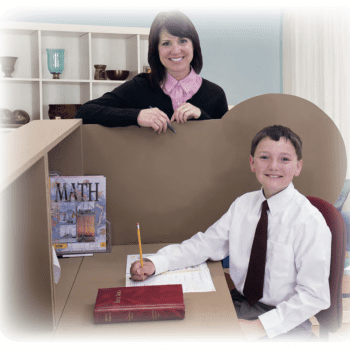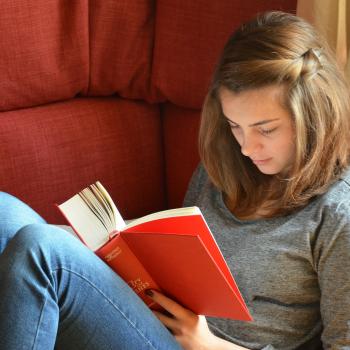The local Christian school was too expensive, the nearest private school too far away, the public school too depraved, and the Catholic school too, well, Catholic. So when I was six years old and legally required to be enrolled in some kind of formal education, my parents decided to homeschool.
Up through about sixth grade or so, this was a good experience – my parents enrolled us in private music lessons and community swim lessons. We had plenty of friends through our church and our homeschool group, which largely overlapped at the time.
Junior high school was when my social life died: Very few of my grade-school friends continued to be homeschooled past this point, and by that time, those that did all went to different churches. There were few people in my neighborhood who were within two years of my age. I became entirely out of touch with pop culture and what “normal” life was like.
In high school, my academics started to suffer. It was all self-taught: English was reading lots of famous books, economics was reading a couple books on economics, language was a computer program, history was taught from an extreme right-wing dominionist perspective, I don’t even know what my parents claimed I did for civics, and health was a book from Bob Jones University that didn’t even have any information about the hormones causing my menstrual cycle but did contain several pages concerning how a young woman should choose the best hairstyle for her face shape and body type.
Fortunately, my parents both loved science: They had chosen the most rigorous math and “Christian” science cirricula they could find in several fields and I just burned through them so enthusiastically that I had a total of five or six years of science after three years of high school. I read anything else scientific I could find: I had read Stephen Hawking and Brian Greene by the time I graduated high school, and could explain the differences between Darwin’s and Lamarck’s theories of evolution even though my parents had taught me young-earth creationism.
Through all this, I obtained perfect scores in every kind of standardized test I took, save the SAT’s where I scored in the 700’s, so the public school district officials were perfectly satisfied with whatever my parents were doing.
After three years, I had legally finished all my required courses for graduation, and decided to try public school for the sake of taking AP classes. My parents didn’t object – I personally felt like they had run out of energy and resources to homeschool me for another year. I loved being able to use all sorts of art supplies that my parents could never have afforded, having Flash and Photoshop on the school computers, and doing science labs. I also began to have friends, who did things like take me trick-or-treating for the first time and loan me their Coldplay and U2 CD’s.
In college, the deficiencies in my education became clear: I had little concept of history, and my attempts at academic writing were appalling. I didn’t know much about history, had no idea what sociology even was, and my writing professor spent a lot of time helping me (successfully, in the end!) during office hours once she discovered that nobody had ever even told me what a thesis statement was before, much less given me any further direction in academic paper-writing.
I was also fortunate enough to meet some amazing friends during this time in college, and with their help I went from being horribly socially awkward to being perfectly able to pass myself off as “normal” – well, “normal” for a scientist. I was also lucky enough to be invited to anime club, and be introduced to a circle of people for whom “geek” was a badge of pride, not an insult.
Today, people ask in surprise, “You were homeschooled? I’d never have guessed!” Although my education was stellar as far as math and science (the fields that I’m currently in), it did take me several years to get over the social and academic setbacks that had occurred in high school and junior high school. The biggest thing that still follows me today is my lack of a high school diploma or even a GED; I’m still encountering difficulties applying for jobs because HR people have no idea what to do with someone with two college degrees but no evidence of ever having graduated high school.
After all of this? Through primary school, I think that homeschooling can be a good, perhaps in some circumstances even the best, choice for a child. But, I don’t think that there’s any substitute for a private or public high school, with teachers who have high levels of knowledge in their specific fields, and access to resources like art supplies, athletic equipment, computer software, science labs, and theaters that wouldn’t be feasible for most homeschoolers.
—————
Homeschooling has become a very polarized subject. It is my hope that the Homeschool Reflections series, made up of stories of actual homeschool experiences, both positive and some negative, may cut through some of the hyperbole. I have asked the respondents in this series to be analytical and to discuss both the pros and cons of their experiences, but I have not censored what they have written. My posting these stories should not be construed as endorsement the opinions expressed therein. What you read in this series will vary, but it is my hope that each installment will be thought provoking and have something positive to offer to the discussion.















